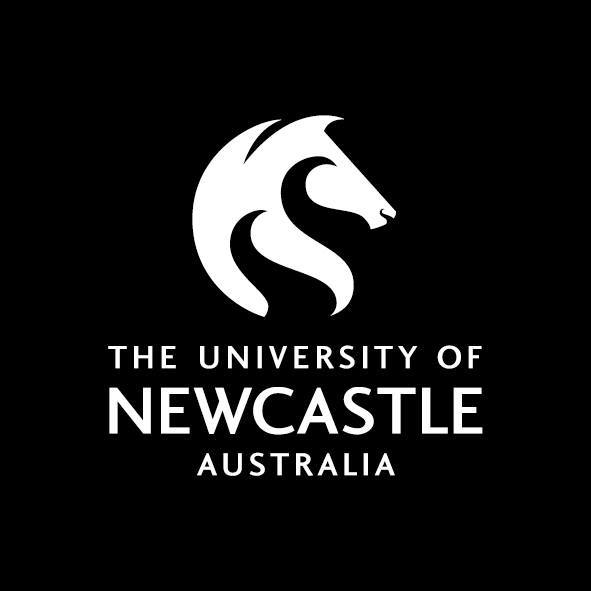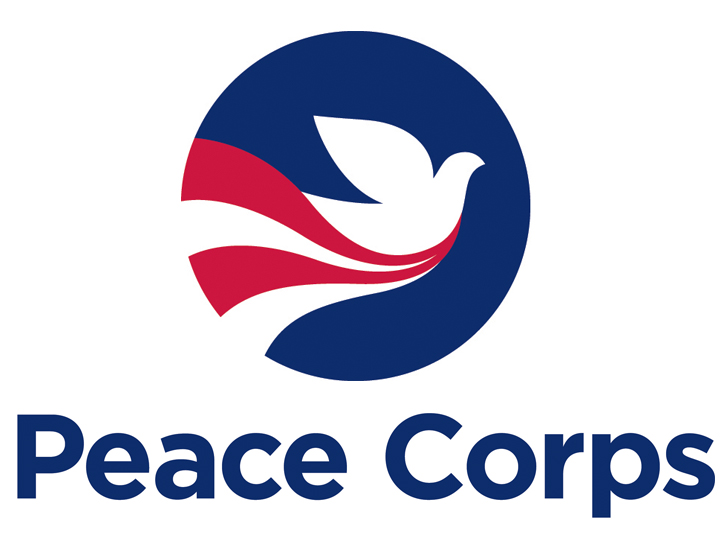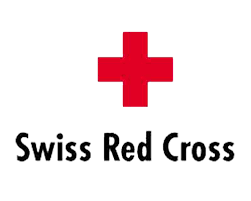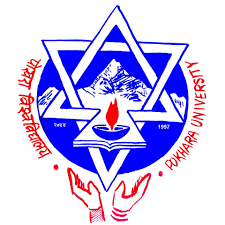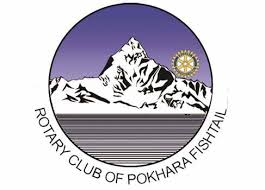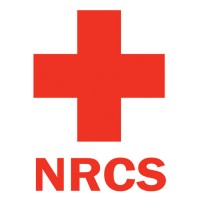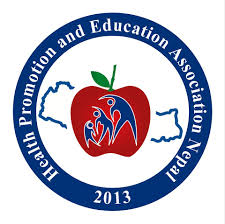CAREER SUMMARY
Biography
Dr. Binod is currently serving as the Secretary for the Ministry of Health and Population in the Gandaki Province of Nepal. In this role, he provides overall leadership to the province's healthcare system. He has been instrumental in developing provincial health policies and strategies, supervising over 7,000 health professionals. Dr. Binod is actively involved in lobbying the government to improve policy, public health programs, and financial environments to enhance human resource capacity and strengthen all 759 local health institutions, including eleven district public health offices and twelve district hospitals in the Gandaki Province.
Before becoming the Secretary, Dr. Binod served as the Director of Health Services for the province. Additionally, he holds a position as a Conjoint Lecturer at the University of Newcastle, Australia, and is affiliated with the Hunter Medical Research Institute (HMRI).
Dr. Binod earned a Ph.D. in Public Health from the University of Newcastle, Australia, where his research focused on addressing high rates of maternal health conditions and mortality in rural Nepal. He designed, developed, and implemented a model of community-led intervention for maternal health, which he presented to the Nepalese government to roll it out nationwide. After completing his Ph.D., he continued to work with the University of Newcastle as a Student Researcher, extending the interventions to control populations and adjoining communities in Nepal. Dr. Binod also holds master's degrees in Public Health and Sociology, as well as a postgraduate degree in Health Education.
Dr. Binod is passionate about training and teaching. As a director of the provincial health training centers, he engaged in training medical officers and district public/health managers, including community health officers, for over eighteen years. While pursuing his Ph.D. at the University of Newcastle, he taught Master of Public Health students. Dr. Binod also teaches public health at Pokhara University in Nepal.
Dr. Binod has two and a half decades of experience working in various roles within the Nepalese government. He served as the Director of the National Health Education, Information, and Communication Centre (NHEICC) within the Ministry of Health and Population from March to October 2014. In this role, he provided leadership in designing, developing, and disseminating national health communication programs. As the head of the focal organization for non-communicable diseases, Dr. Binod helped develop a national consensus to increase the size of pictorial health warnings on tobacco packaging to ninety percent, the highest percentage in the Asian continent. This achievement earned Nepal a Bloomberg Philanthropies Award for Global Tobacco Control in 2015.
Dr. Binod began working with the Nepalese government in 1995, training healthcare managers, paramedical staff, and community health professionals. At one of the training centers in Pokhara, he designed and implemented a result-oriented leadership development program, empowering support staff (cleaners) to manage the general affairs of the organization. These interventions produced rewarding outcomes, including physical improvements to the organization and enhanced cohesiveness among staff. This experience encouraged senior staff to take on challenging goals. Dr. Binod successfully led the team to develop an International Training Centre in Nepal. With sustained effort and diligent focus, the Pokhara team succeeded in having their Centre approved by the government as an International Health Training Centre, the first of its kind in the country.
Dr. Binod worked with the Swiss Red Cross Eye Care Project as an ophthalmic professional. As Chairman of the Staff Association, he fostered productive, harmonious relationships between staff and management, playing a critical role in dispute management within the organizational environment. He organized free community-based eye care camps with the participation of school-based Junior Red Cross circles. Dr. Binod was assigned as the head of the first conceptual Primary Eye Care Centre, extending from the city to remote districts. He successfully organized static clinics and community eye care camps and engaged Junior Red Cross volunteers (school students) in community awareness programs, including training community eye care volunteers. Based on the success of his community-based eye care programs, similar models have been extended to more than eighty percent of rural districts in Nepal.
Dr. Binod also has experience working with the Peace Corps in Nepal. He coordinated two pre-service training programs for American volunteers before their two-year volunteer assignments in Nepal. In this role, he coordinated language, cultural, social interaction, subject-specific training, and exposure programs in the villages.
Dr. Binod's career is marked by his dedication to public health, policy development, and community-based health interventions, making significant contributions to the healthcare system in Nepal.
Director/Spokesperson: COVID-19 pandemic, province government, Gandaki province, Pokhara, Nepal
During the unforeseen cascade of events leading up to the WHO declaring COVID-19 a global pandemic, Dr. Binod, as the Chief of Health Directorate in Gandaki Province, coordinated and managed various efforts to prevent and control the spread of this highly contagious disease. Dr. Binod promptly took the initiative to train healthcare professionals, particularly lab professionals, for sample collection and procuring the necessary equipment for diagnostics, quarantine, and isolation of suspected and infected individuals. He lobbied the province government to establish intensive care units (ICUs) in each of the eleven district hospitals. The government approved the proposal and provided a budget for a total of 51 ICU beds in the province.
He developed laboratory and case management protocols and organized orientation training for district health teams. He also organized training for district hospital teams on managing critical cases and coordinated training for nursing staff working in ICU environments.
During the program intervention, Dr. Binod and his team proactively disseminated public service announcements (PSAs) about various economic and psychosocial aspects of COVID-19 through different social media platforms. This effort was instrumental in reaching the grassroots of the community with key messages to improve individual, family, and community practices.
Assessing the evolution of the situation from global and local standpoints, Dr. Binod strongly advised the Social Development Ministry to continue enforcing lockdown measures and implementing a zero-tolerance policy except for essential services and products. He spent numerous hours consulting with and arranging for healthcare providers to ensure the quality delivery of health services. He also conducted field visits to highly vulnerable areas where diagnosed cases were being managed and monitored.
Dr. Binod gave interviews and press releases on FM radio and YouTube outlets to inform residents of the latest updates and efforts being conducted daily. He also lobbied for special attention to the well-being and funding for those on the front lines battling COVID-19.
Key Competencies and Influence on Policy Development
Key Competencies
-
Leadership: Providing leadership for program development, strategy development, and advocacy.
-
Training: Organizing the training of trainers on a wide range of health and management issues.
-
Finance: Developing and administering project budgets and training budgets. Administration of major departmental allocations up to $16.2 million USD annually.
-
Human Resource Management: Twenty-five years of experience in managing human resources through organizational management, training, and development.
-
Coordination: Coordinating specific training needs through workshops, curriculum development, community health projects, inter-agency collaboration, or intervention research, as appropriate.
-
Risk Taking: Transforming work culture in the government system environment through a result-oriented leadership development program.
Influence on Policy Development
My research into community education through singing health messages has been thoroughly considered by the Government of Nepal. At the community level, before the intervention, it was taboo for males to discuss pregnancy and childbirth issues. Most unexpectedly, after the intervention, this situation has been reversed. Our surveys show that each pregnancy is now discussed and is seen as both a family and community responsibility. As a result, the culture of maternal care has been completely transformed in the intervention villages. Pregnancy and childbirth issues are never left undiscussed, and it is unusual for any family to remain ignorant and inactive regarding pregnancy and birth.
Recognizing these positive changes brought about by the intervention, the Government of Nepal has adopted the practice of community education through singing health messages and created a new budgeted program headquartered in Gandaki province. As a result of my PhD project and further related work, the Government has also announced the provision of an air ambulance, increased incentives for institutional delivery, set a requirement of four antenatal visits for expectant mothers, and improved the recording and reporting of maternal mortality. The Government has reaffirmed this commitment by making budget allocations to continue these provisions. Within a year and a half of these announcements, a total of 137 women with obstructed labor had been airlifted from rural districts to receive skilled care at the provincial hospitals.
Advocacy and lobbying for policy change
In addition to my published work, I am constantly engaged in sharing its results and positive impacts: through improved pregnancy and childbirth practices at the community level; and through advocacy at the government level to influence policy decisions. For example, after a successful advocacy program, the Government of Nepal adopted a policy I promoted to provide free sanitary pads to all public-school going girls, thus helping girls to continue their schooling and improve their education, health and income potentials, all essential for improved social standing.
Both the government and community were credited for the positive results achieved. A few interviews were featured in the national television channels and national and local radio programs (see media coverage and videos). One of the research interventions has been featured on the webpage of University of Newcastle, Australia.
Collaborations, partnerships and achievements
Collaborative Vision for Sustained Transformation (2015 - 2017)
-
Project Design and Implementation: Designed, developed, and implemented projects to facilitate improved maternal health outcomes in Nepal in collaboration with Laureate Professor Roger Smith AM and Professor Deborah Loxton.
Inter-University Coordination (2017)
-
Academic Collaboration: Assisted the University of Newcastle, Australia, and Pokhara University in developing collaborative programs to foster academic interactions benefiting both universities and their students. Plans are underway to formalize these inter-university collaborations.
Collaboration for Community Development (2017)
-
Training and Health Clinic: Initiated a collaboration with key specialists, including Dr. Henry Murray, Head of the Department of Obstetrics and Gynecology at John Hunter Children’s Hospital, to organize training for Nepalese rural nurses and establish a gynecological health clinic in remote villages of Nepal. As a result, a team headed by Dr. Murray visited Nepal in October 2017.
Inter-Agency Coordination (2014)
-
"One Door" Policy Implementation: Collaborated with all external donor partners (EDPs) working in the field of health and development in Nepal to implement the “one door” policy for health education, information, and communication programs.
International Collaboration for Development (2014)
-
Mobile Health Program: Coordinated with Johns Hopkins University Center for Communication Programs (JHU CCP) and national and local stakeholders to design, develop, and implement a mobile health (m-Health) program targeting youths to educate them on sexual and reproductive health issues in Nepal.
Nationwide Campaign for Policy Change on Tobacco Control (2014)
-
Directive on Tobacco Warnings: As Director of the National Health Education, Information, and Communication Centre, I issued the "Directives on Printing Warning Messages and Pictures on Tobacco Product Boxes, Packets, Cartons, Parcels, and Packaging Materials, 2014." This directive increased the size of the graphic health warnings from 75 percent to 90 percent of the front and back of all tobacco product packaging, starting in 2015.
-
National Campaign: Organized a nationwide campaign to develop national consensus to increase the size of pictorial health warnings to 90 percent of the packaging area, the highest percentage in the Asian continent.Following my work on tobacco labeling, Nepal was awarded a Bloomberg Philanthropies Award for Global Tobacco Control in 2015.
Achievements
Health Minister Bloomberg Public Health Award (2024)
- Awarded the "Minister of Health Vlumberg Public Health Award" for significant contributions in reducing, controlling, and regulating the import, production, sale, distribution, and consumption of tobacco products in Nepal, 2081.
Bloomberg Philanthropies Award (2015)
- Following my work on tobacco labeling, Nepal was awarded a Bloomberg Philanthropies Award for Global Tobacco Control in 2015.
Coordination for Public Education and Sensitization (2014)
- Anti-Tobacco Documentary: Coordinated the development of a video documentary entitled “Mission Anti-Tobacco” based on the experience of then Minister for Health Mr. Khaga Raj Adhikari to educate people on the consequences of tobacco use. Link: https://www.youtube.com/watch?v=V4mZSGbH6_o
Organization and Management of International Training Program (April 19-30, 2010)
- Maternal and Child Healthcare Training: Coordinated international training on "Programming to Strengthen Maternal and Child Healthcare through Community Participation" at the International Training Centre, Pokhara, Nepal.
International Program Management (2009)
- Health Service Utilization Training: Organized and managed international observation training programs on community engagement for improved health service utilization.
Local Coordination (December 6-10, 2008)
- Hospitality Management Training: Coordinated with local Tourism College and local hotels to organize hospitality management training for healthcare providers and the staff of the International Training Centre.
Collaborative Initiative for Transformation (2007)
- Leadership Development Program: Designed and implemented a result-oriented leadership development program where support staff (cleaners) were trained and empowered to organize training for cleaners of other organizations, helping manage the general affairs of the organization.
Teamwork for a Shared Goal (2006)
- International Health Training Centre Proposal: Successfully proposed to the Government of Nepal to upgrade the Regional Health Training Centre, Pokhara, to an International Health Training Centre.
- Advocacy Programs: Organized advocacy programs to help health executives, Members of Parliament, the National Planning Commission, and other stakeholders understand the national and international significance of the proposed International Training Centre.
- Promotional Documentary: Coordinated the development of a promotional documentary on “Nepal’s Vision to Develop International Training Centre.” Link: https://www.youtube.com/watch?v=EDe43yXXePc
- Government Approval: The Regional Health Training Centre, Pokhara, was approved by the government as an International Health Training Centre, the first of its kind in the country.
- WHO Collaborating Centre: Ministerial communications with WHO Nepal and the South-East Asia Regional Office are underway to develop this Centre as a WHO Collaborating Centre.
National Training by International Experts (2004)
- Decentralized Management Training: Coordinated with the Ministry of Health and Population, Nepal, the British Council, and Nuffield Institute for Health (UK) to organize training in “Decentralized Management & Planning for Health” for senior health professionals of Gandaki province.
Professional Experience with the US Governmental Agency (August - December 1998 / September - November 2000)
- Peace Corps Nepal: Coordinated two pre-service training programs for American volunteers before their two-year assignment in Nepal, managing language, cultural, social interactions, subject-specific training, and exposure programs in the villages.
Developing a Model of Rural Eye Care (1986 - 1995)
- Swiss Red Cross Eye Care Project: Worked as an ophthalmic professional organizing free community-based eye care screening and surgical camps with community and Junior Red Cross circles' participation.
- Primary Eye Care Centre: Assigned as Head of the first conceptual Primary Eye Care Centre to be extended from city to remote districts, managing the static clinic and engaging the community in eye care programs.
- Community-Owned Eye Care Program: Developed and extended a model community-owned eye care program in rural districts of Nepal.
Leading Community to Achieve Higher Goals (1982–1983)
- Primary School Construction: Coordinated and led villagers to collect donations to construct a primary school in a remote village. The effort resulted in the construction of “Jiwan Jyoti Primary School” in Parbat district, now functioning with a total of 49 students.
Professional Assignments
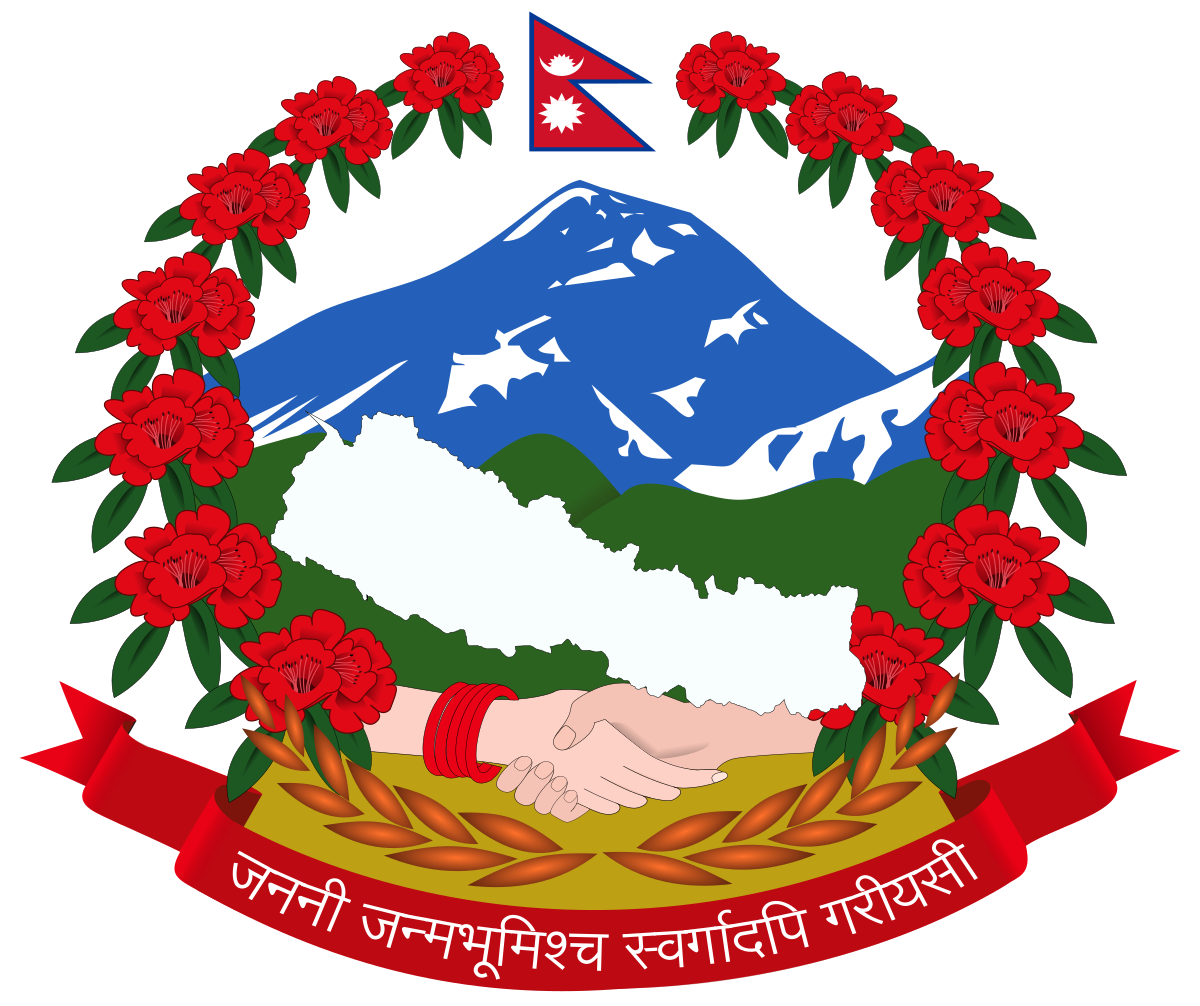 |
Secretary Ministry of Health and Population, Gandaki Province, Pokhara, Nepal (June 2021 - hitherto) |
Dr. Binod is currently serving as the Secretary of the Ministry of Health and Population, Gandaki province, where he provides overall leadership to the province government's healthcare system. He has been instrumental in developing province health policies and strategies, supervising more than 7000 health professionals, and strengthening all 759 local health institutions, including eleven district public health offices and twelve district hospitals of Gandaki province. Before his current role, Dr. Binod served as the Director of Health Services in the province government. Additionally, he holds a position as a Conjoint Lecturer at the University of Newcastle, Australia, and is affiliated with the Hunter Medical Research Institute (HMRI).
 |
Director Health Directorate Ministry of Health and Population, Gandaki Province, Pokhara, Nepal (2019 - 2021) |
|
|
Conjoint Lecturer University of Newcastle, Australia Callaghan NSW 2308 (2020 - Hitherto) |
Dr. Binod serves as a Conjoint Lecturer at the University of Newcastle, Australia, and is affiliated with the Hunter Medical Research Institute (HMRI).
|
|
Student Researcher University of Newcastle, Australia (2018) Callaghan NSW 2308, Australia |
Dr. Binod worked with the University of Newcastle as a Student Researcher after completing his PhD. He rolled out interventions in the control population and adjoining communities of the intervention cluster in Nepal.
|
PhD Researcher University of Newcastle, Australia (2014 - 2018) Callaghan NSW 2308, Australia |
Dr. Binod designed, developed, and implemented a model of community-led intervention for maternal health, which was presented to the Nepalese government. This initiative led to significant policy changes, including the announcement of an air ambulance provision, increased incentives for institutional delivery, a requirement of four antenatal visits for expectant mothers, and improvements in the recording and reporting of maternal mortality. The government has committed to continuing these provisions with budget allocations.
 |
Director National Health Education, Information and Communication Centre (NHEICC) and different Regional Health Training Centres Ministry of Health and Population, Nepal (1995 - 2014) |
Dr. Binod served as the Director of the National Health Education, Information, and Communication Centre (NHEICC) within the Ministry of Health and Population in Nepal from March to October 2014. He provided leadership in the design, development, and dissemination of national health communication programs throughout the country. Dr. Binod also led efforts to increase the size of pictorial health warnings on tobacco packaging to ninety percent, which led to Nepal being awarded a Bloomberg Philanthropies Award for Global Tobacco Control in 2015.
|
|
Technical Training Coordinator Peace Corps/Nepal (Aug - Dec 1998 and Sep - Nov 2000) |
Dr. Binod developed a pre-service training curriculum for Peace Corps volunteers and conducted training for Water Sanitation Coordinators (American Citizens) on health, water, and sanitation programs. He organized sessions on cross-cultural adaptation and facilitated cultural learning exposures. Dr. Binod also evaluated the training program and developed a technical manual.
|
|
Ophthalmic Officer / Regional Health Educator Swiss Red Cross / Eye Care Project Fateh Bal Eye Hospital, Nepalgunj, Nepal (1989 - 1995) |
Dr. Binod conducted a training needs assessment of eye care providers and community eye care volunteers in the region. He developed training curriculum and organized training on community eye care and program management. Dr. Binod performed eye examinations and minor surgical interventions. He coordinated with local government organizations (GOs), international non-governmental organizations (INGOs), and non-governmental organizations (NGOs) for effective implementation of eye care programs. Dr. Binod introduced a community eye care volunteers program with the help of the Red Cross local chapter and community, and planned and conducted basic training for these volunteers. He organized community eye care camps with the help of trained volunteers through community participation. Dr. Binod managed static clinic and community programs including human resource, administration, and finance.
Recognitions / Awards
- Awarded the prestigious "Nepal Bidhya Bhushan Kha" by then President of Nepal, Dr. Ram Baran Yadav, for securing the highest marks (CGPA 4/4) and rank at the University of Bangladesh while studying for a Master of Public Health (MPH).
- Awarded the "Best Service Award" in the field of training and program development by the Government of Nepal, Mid Western Regional Health Directorate.
- Awarded for Outstanding Eye Care Services Management in Bardia District by the Nepal Red Cross Society District Chapter Bardia.
Qualifications
|
2014-2018 |
PhD (Public Health) |
University of Newcastle, NSW, Australia |
|
2006 |
Master of Public Health |
State University of Bangladesh, Bangladesh |
|
2000 |
Master of Sociology |
Tribhuvan University, Nepal |
|
1994 |
Diploma in Health Education |
Tamil Nadu Dr MGR Medical University, India |
|
1992 |
Bachelor of Humanities |
Tribhuvan University, Nepal |
| 1989 | Certificate in Ophthalmology | Council of Technical Education and Vocational Training (CTEVT), Nepal |
Keywords
Public health; pregnancy; antenatal care; skilled birth; maternal mortality; singing; community education; community leadership; community engagement; Nepal;
Associations
|
Member, Subject Committee/ Public Health, Department of Health Sciences |
|
|
Member Rotary International |
|
|
Life member |
|
|
|
National Vice-President (Life Member) |
